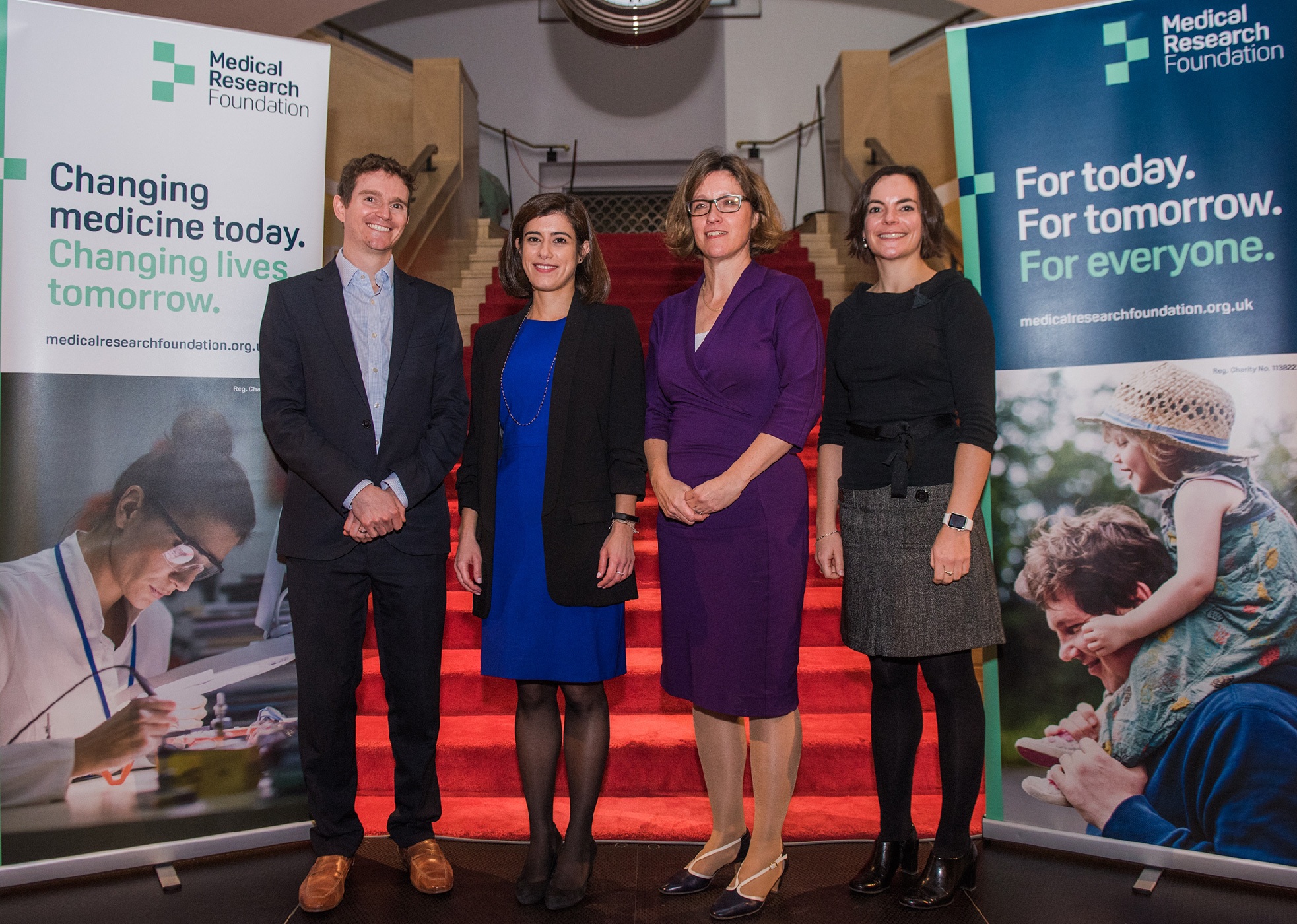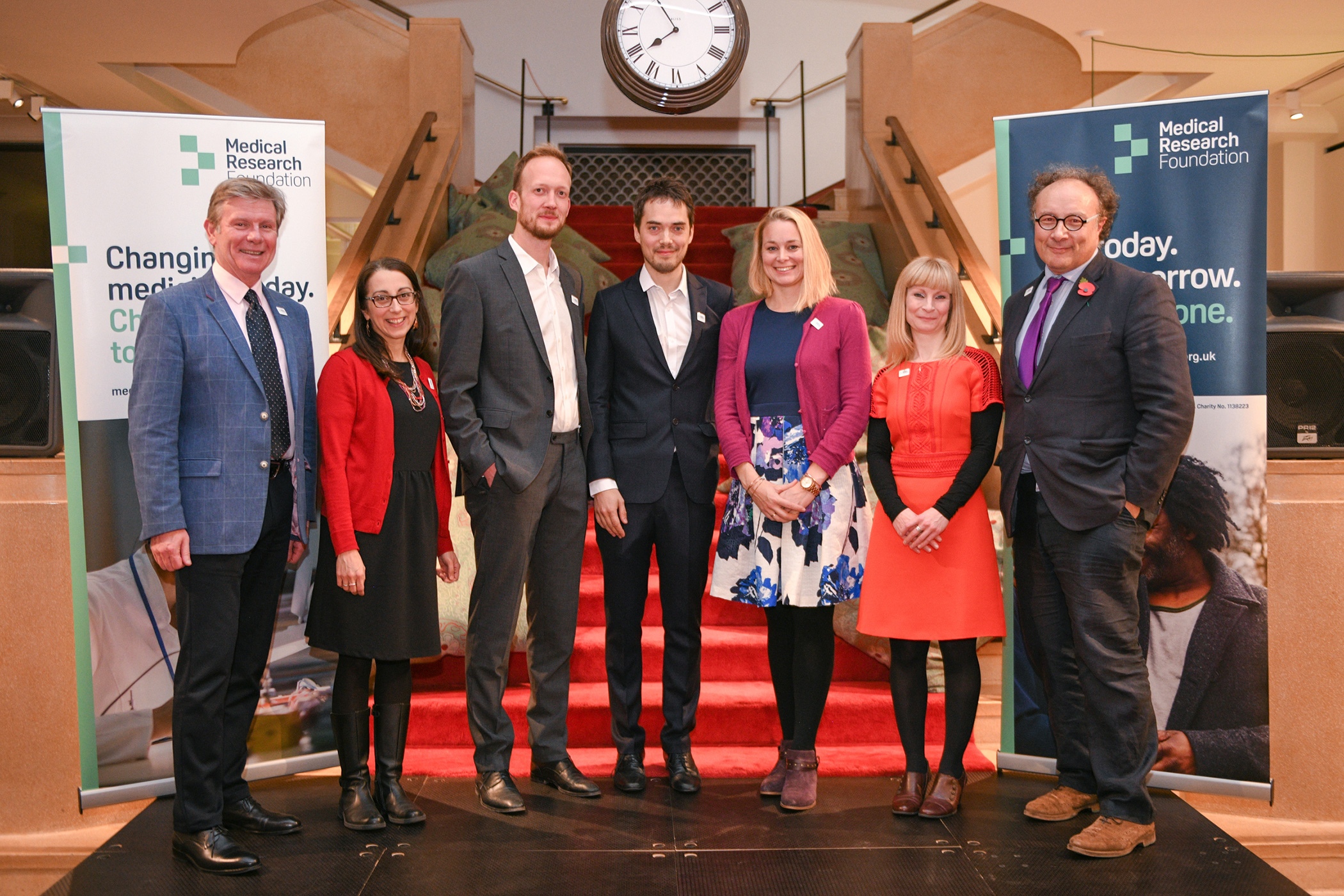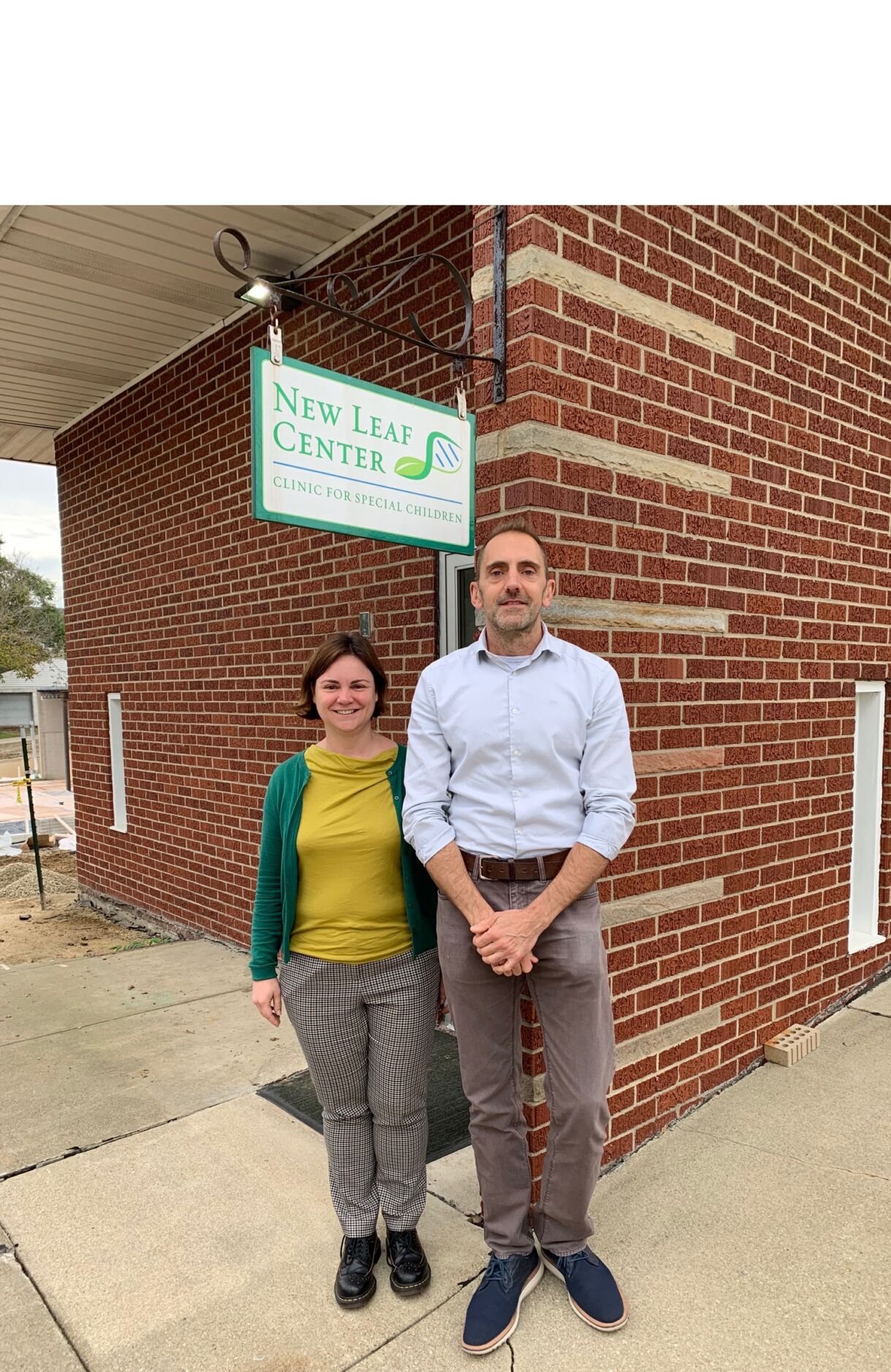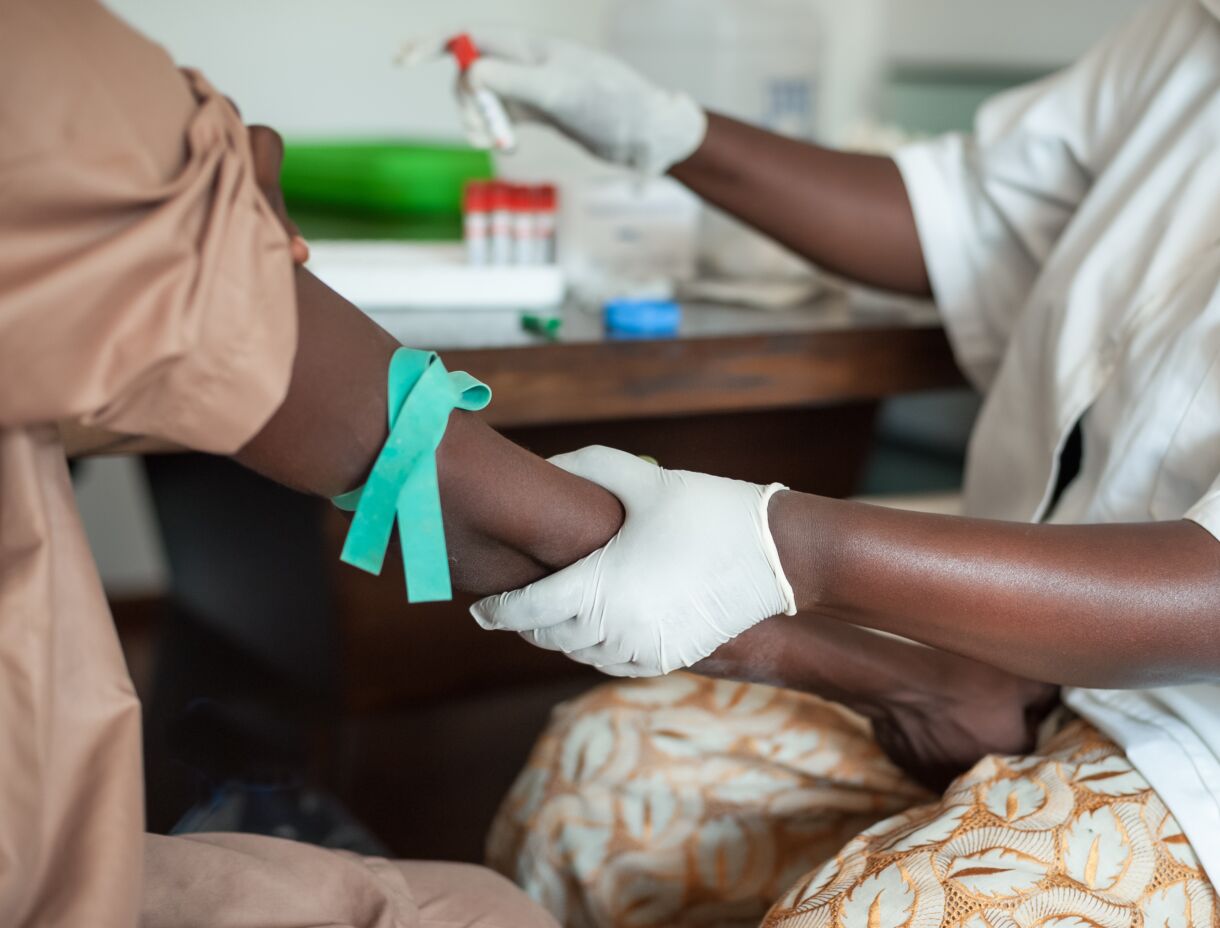
Research stars of the future
Through our Emerging Leaders Prize, we've funded research into lupus, adolescent mental health, antimicrobial resistance (AMR), pain research, COVID-19 and hepatitis.
Since our first Emerging Leaders Prize in 2017, we’ve awarded over £1million to more than 20 outstanding scientists working in the fields of lupus, adolescent mental health, antimicrobial resistance (AMR), pain research, COVID-19 and hepatitis. The most recent 2024 Emerging Leaders Prize theme was the impact of climate change on health in the UK.
The prize fund is flexible, allowing the winners to decide how best to use it. That could mean spending time in a lab overseas, buying cutting-edge technology to support their research, or investing in their personal career development.
Through the Prize, we’ve looked for scientists on a trajectory to do something unique and special in their field, and that’s undoubtedly the case with our winners. Each year I’m blown away by the pool of talent we’ve been able to unearth.Professor Danny Altmann
Trustee and Chair of the Emerging Leaders Prize panel
Our former Trustee and Chair of the Emerging Leaders Prize panel, Professor Danny Altmann, explains: “Through the Prize, we’ve looked for scientists on a trajectory to do something unique and special in their field, and that’s undoubtedly the case with our winners. Each year I’m blown away by the pool of talent we’ve been able to unearth.
“We know this prize has already been a real game-changer for many of our winners, providing a vital springboard for the next stage of their careers.”
Between them, our prize-winners have secured additional funding totalling nearly £2.5 million and published more than 40 research papers in leading medical journals. This reflects both their advancement of understanding and knowledge surrounding key health challenges, and potential to become research leaders of the future.
Previous ELP themes: (more information can be found below)
- 2024 - Climate Change and Health
- 2023 – Viral and Autoimmune Hepatitis
- 2022 – Lupus
- 2021 – COVID-19
- 2020 – Pain
- 2019 – Antimicrobial Resistance
- 2018 – Adolescent Mental Health
- 2017 - Lupus
2024 - Climate Change and Health
It is thought that over 40 per cent of the world’s population – that’s over 3.3 billion people – are highly vulnerable to climate change. The science is clear: climate change is a real and rapidly growing threat to all of us. As global temperatures continue to rise, we can expect to see an increase in the scale and severity of natural disasters, leading to death, injury and displacement of entire communities.
We are already witnessing the catastrophic impacts of climate change on health, from changing and unpredictable patterns of infectious disease to heat-related illnesses and deaths. The warming climate is also affecting food security and heightening the threat of malnutrition, as well as worsening maternal and child health outcomes.
That’s why we are focusing more of our funding on the impact of climate change on health.
Our 2024 Emerging Leaders Prize winners are both making a significant impact in climate and health research. By investigating the human health impacts of extreme weather events and how microbial communities are affected, their studies could lead to much-needed new approaches to mitigating climate change.
1st place, £100,000 prize: Dr Daniel Padfield, University of Exeter
Highly commended, £10,000 prize: Dr Eunice Lo, University of Bristol

Left to right: Dr Daniel Padfield and Dr Eunice Lo.
2023 - Hepatitis
Hepatitis is an inflammation of the liver. There are five main strains of the hepatitis virus, referred to as types A, B, C, D and E. In particular, types B and C (HBV and HCV) are the most common cause of liver cirrhosis, liver cancer and viral hepatitis-related deaths.
While existing treatments can lead to a cure, the prospect of life-long antiviral therapy can lead to a number of complex challenges. We need better options for diagnosing and treating hepatitis, to help prevent the 1.4 million deaths that occur each year worldwide.
Our 2023 Emerging Leaders are working to tackle challenges in liver disease and viral hepatitis, including the development of future vaccines and drugs.
1st place, £100,000 prize: Dr Hamish Innes, Glasgow Caledonian University
2nd place, £70,000 prize: Dr Azim Ansari, University of Oxford
Highly commended, £30,000 prize: Dr Joe Grove, MRC-University of Glasgow Centre for Virus Research

Left to right: Dr Joe Grove, Dr Hamish Innes and Dr Azim Ansari.
2022 - Lupus
Funded by a generous gift in Will from Dr Erina Herrick, our sixth Emerging Leaders Prize in 2022 celebrated exceptional researchers in the field of lupus.
Lupus is a complex, long-term illness that can cause damage to the skin, organs, joints or any other part of the human body. It can affect anyone, but it is more common in those who are of African, Caribbean or Asian origin, and women account for 90 per cent of cases.
Lupus is one of our longest-standing research priorities. Our 2022 Emerging Leaders Prize-winners are all making a significant impact in lupus research. By investigating the fundamental causes of lupus, their studies could lead to much-needed new approaches to diagnosis and treatment. In turn, these advances could dramatically improve the lives of adults and children living with lupus.
Joint 1st place £100,000 prize: Dr Eve Smith, University of Liverpool and Alder Hey Children’s NHS Foundation Trust
Joint 1st place £100,000 prize: Dr Alex Clarke, University of Oxford
Highly commended, £20,000 prize: Dr Thomas McDonnell, University College London

Left to right: Dr Alex Clarke, Dr Eve Smith and Dr Thomas McDonnell.
COVID-19 - 2021
Coronavirus disease (COVID-19) is an infectious disease caused by the SARS-CoV-2 virus.
In 2020, the emergence of COVID-19 quickly became a global health crisis. As scientists across the world came together to strengthen our understanding of the disease, collaborating across varying disciplines, 2020 also became an extraordinary year for medical research. Researchers helped us to find out more about the effect of COVID-19 on the body, as well as how it could be diagnosed and treated.
To celebrate this (with additional financial support from Pfizer), our 2021 Emerging Leaders Prize funded four leading scientists whose work is, even today, helping to shape national and international responses to the COVID-19 pandemic. Our awardees are providing answers to key questions about the SARS-CoV-2 virus, along with accurate testing methods, life-saving treatments, protective vaccinations and policies to keep the most vulnerable safe from COVID-19 and future similar outbreaks.
Joint winners:
£100,000 prize: Dr Rosalind Eggo, London School of Hygiene & Tropical Medicine
£100,000 prize: Dr Katie Doores, King's College London
£100,000 prize: Dr Antonia Ho, MRC-University of Glasgow Centre for Virus Research
£100,000 prize: Dr Koen Pouwels, University of Oxford

Left to right: Dr Koen Pouwels, Dr Katie Doores, Dr Antonia Ho, Dr Rosalind Eggo.
Pain – 2020
Pain affects around 28 million people in the UK. It is not simply a symptom of disease but has a biology that is important to understand due to its wide-ranging effects on people’s quality of life. Chronic pain also carries a large societal and economic burden by putting extra strain on healthcare systems, as well as contributing to unemployment and work absence due to sickness. Chronic pain costs the UK economy billions of pounds every year.
Despite these personal, societal and economic burdens, there is still a significant gap in our understanding of pain. Our 2020 Emerging Leaders Prize funded four exceptional scientists, who are grappling with issues such as alleviating pain in babies and preventing pain after whiplash injury in adults.
1st place, £100,000 prize: Dr Lorenzo Fabrizi, University College London
2nd place, £80,000 prize: Dr Annina Schmid, University of Oxford
Highly commended, £10,000 prize: Dr Philip Holland, King’s College London; Dr Franziska Denk, King’s College London

1st place prize winner Dr Lorenzo Fabrizi, University College London (UCL).
Antimicrobial resistance - 2019
Antimicrobial resistance (AMR), and specifically antibiotic resistance, poses a global threat to human life, requiring urgent action to halt drug resistance and to accelerate new treatments for bacterial infection. Already, drug-resistant infections are estimated to cause 700,000 deaths each year globally, and that figure is predicted to rise to 10 million by 2050.
In 2019, we recognised outstanding scientists working on a range of research problems related to AMR, including finding the best gene combination to determine whether someone has a bacterial infection, rather than a viral infection, in turn guiding whether they genuinely need antibiotic treatment.
1st place, £100,000 prize: Dr Myrsini Kaforou, Imperial College London
2nd place, £90,000 prize: Dr Tihana Bicanic, St George’s University of London
Runners-up, £5,000 prize: Dr David Eyre, University of Oxford; Dr Alison Mather, Quadram Institute Bioscience

Left to right: Dr David Eyre, Dr Myrsini Kaforou, Dr Tihana Bicanic and Dr Alison Mather.
Adolescent mental health - 2018
Our 2018 prize-winners are probing various aspects of adolescent mental health, including the genetic factors that put young people most at risk of developing mental health problems, and brain imaging techniques which could establish whether changes in neural pathways are connected with mental ill health.
1st place, £100,000 prize: Dr Jean-Baptiste Pingault, University College London.
2nd place, £80,000 prize: Dr Tobias Hauser, University College London
Runners-up, each awarded £5,000: Dr Catherine Sebastian, Royal Holloway University of London; Dr Valeria Mondelli, King's College London; Dr Helen Fisher, King's College London, Dr Anne-Laura van Harmelen, University of Cambridge.

Our 2018 winners with Foundation Trustees Professor Nick Lemoine (left) and Professor Danny Altmann (right).
Lupus - 2017
Sometimes our donors specify areas of research important to them, and that was the case for Dr Erina Herrick, who left a gift in her Will to support emerging research leaders in the field of lupus. Our first ever Emerging Leaders Prize in 2017 was a tribute to Dr Herrick, a scientist who lived with lupus for most of her adult life.
Lupus is a long-term autoimmune disease that affects around 15,000 people in England and Wales. It is very difficult to diagnose and is currently incurable, although the disease can be managed if detected early.
Our 2017 prize-winners are tackling vital research questions around the genetic drivers of lupus and the molecular basis of brain disease in lupus.
Dr David Hunt, our first ever ELP prize winner, comments: “The Emerging Leaders Prize has been transformative for my lab’s research into lupus brain disease. The research funds have enabled me to purchase state-of-the-art equipment and develop bold new collaborations. Winning this award has also increased my group’s visibility and allowed me to connect more closely with the lupus community.”
1st place, £100,000 prize: Dr David Hunt, University of Edinburgh
2nd place, £80,000 prize: Dr Tracy Briggs, University of Manchester
3rd place, £20,000 prize: Dr Edward Vital, University of Leeds

Left to right: Dr Tracy Briggs, Dr David Hunt and Dr Edward Vital.


